Forearm workouts can boost your grip power. You can do these moves with dumbbells, machines, or just your bodyweight, whether at home or in the gym.
These exercises lengthen and fortify the muscles that span your hands, wrists, and elbows.
Those muscles are engaged in everyday activities like opening a jar or carrying luggage up stairs. They’re also important in sports such as golf, hockey, racquetball, and basketball.
Building stronger forearms enhances grip strength, which is linked with upper-body power, function, and mobility.
Keep reading to explore 13 forearm-focused exercises.
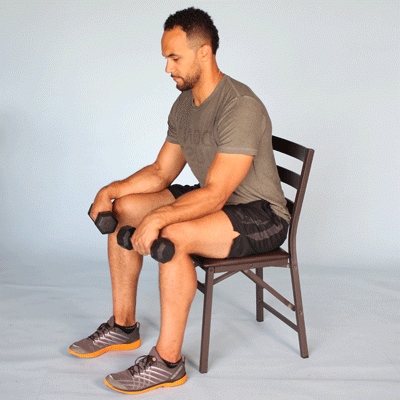
With machines
Behind-the-back cable curl
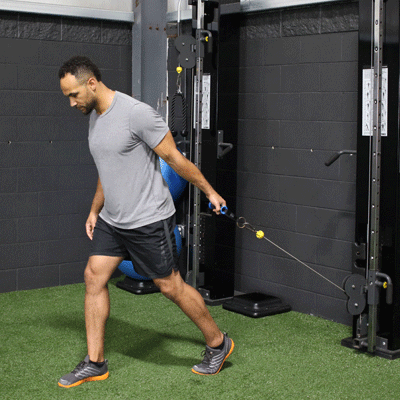
- Grab the handle of a low pulley with your left hand and step a few paces away from the machine.
- Position your right foot a bit ahead of your left.
- Slowly curl your left arm to lift your hand toward your left shoulder.
- Hold briefly, then lower your arm back to the start.
- After 8 to 15 reps, switch sides and repeat.
Do 2 to 3 sets per side.
Towel cable row
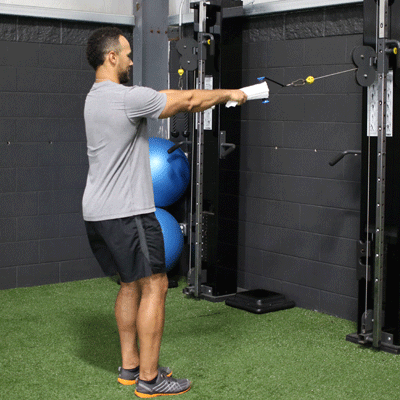
- Secure a towel to a cable pulley and stand facing the machine.
- Hold one end of the towel in each hand.
- Pull your shoulder blades together as you draw the towel to your chest in a rowing motion.
Complete 2 to 3 sets of 8 to 15 reps.
Without weights
Pullups
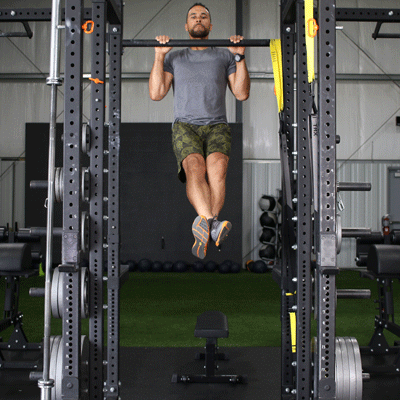
For this move, keep it simple. You’ll need a bar or another sturdy overhead support.
- The standard grip has your palms facing away, though you can turn your palms toward you if that’s easier.
- Squeeze your shoulder blades down and together to engage the lats, and keep your core braced through the movement.
- Pull up until your chin clears the bar, then lower yourself back down with control.
To place more emphasis on the forearms, grip the bar tighter or use a thicker bar. Wrapping a towel around the bar also increases its diameter.
Perform 2 to 3 sets of 8 to 15 reps.
Dead hangs
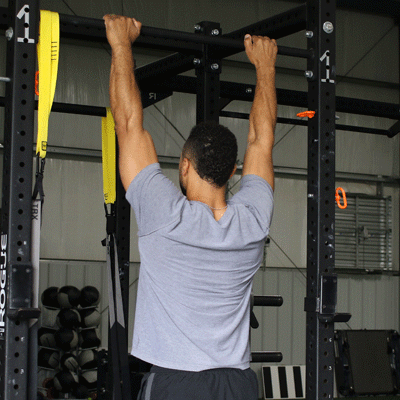
Dead hangs are a simple way to build grip endurance and a gentler option than pullups.
- Grip the bar and hold yourself up as long as you can, keeping your elbows slightly bent.
- Pull your shoulder blades down and together to engage the lats, and keep your core tight throughout.
Hold for 30 seconds to 1 minute per set. Aim for 2 to 3 sets total.
Forearm pull

- Hold a pulley machine’s weight bar at shoulder height with your palms facing down.
- Tuck your upper arms toward your torso.
- Press the weight fully downward.
- Pause, then return to the starting position.
Do 2 to 3 sets of 8 to 15 reps.
At home
Forearm squeeze
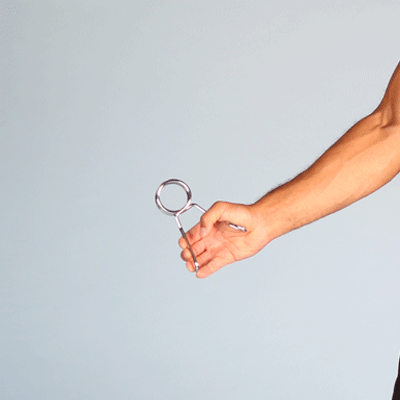
Use hand grippers or any squeezable object, like a tennis ball or a rolled-up sock.
- Open and close your fingers to squeeze the object.
- Hold the squeeze for 3 to 5 seconds, then release for a few seconds.
- Continue this pattern for 10 to 15 minutes.
Repeat 2 to 3 times per arm each day.
Fingertip pushups
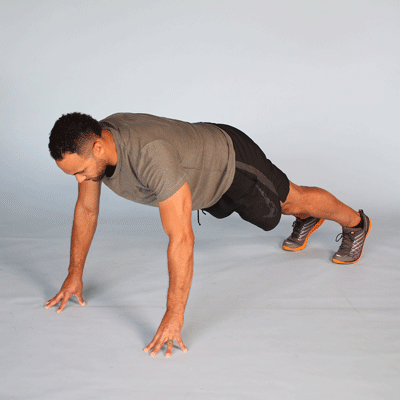
- Kneel by a bench or solid surface and place your fingertips on it.
- Slowly lower your chest toward the bench, bending your elbows to about 90 degrees.
- Push back up to the starting position.
- To increase the difficulty, perform the exercise with your fingertips on the floor.
Do 2 to 3 sets of 8 to 15 reps.
Crab walk
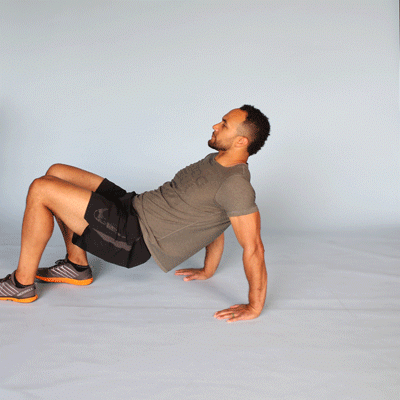
- Get into a reverse tabletop position.
- Place your hands beneath your shoulders with fingers pointing toward your feet.
- Line your ankles under your knees.
- Move forward on your hands and feet for up to one minute at a time.
Complete 2 to 3 sets.
Plank with shoulder taps
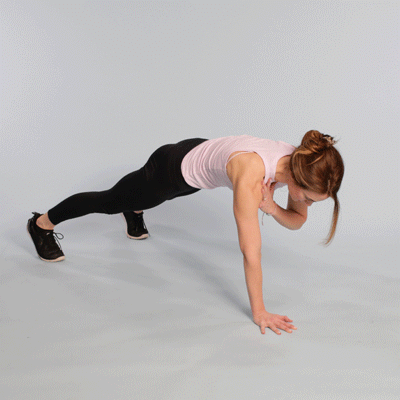
- Kneel on the floor or a yoga mat.
- Place your hands directly under your shoulders as if preparing for a pushup.
- Tuck your toes and lift into a plank, bracing your core.
- Lift your right hand to tap your left shoulder, then return it to the floor.
- Lift your left hand to tap your right shoulder, then return it to the floor.
- Repeat for 30 to 60 seconds, or for as long as you can maintain form.
Do 2 to 3 sets.
Building a routine
You can perform these forearm moves as standalone sessions or incorporate them into your regular workouts. Begin with a few exercises and rotate or add more after several weeks.
If you’re combining them with intense training, avoid overfatiguing the muscles. Some of these can be done briefly most days, with one or two longer sessions weekly.
Give your muscles at least one full day of rest between longer workouts to recover.
Cautions and modifications
Only work to a level that suits your body. Move gently, maintain steady, controlled breathing synchronized with the movement, and avoid sudden jerks.
Stop if you feel forearm pain or anything beyond mild discomfort. If you’re sore afterward, try icing the area and doing gentle stretches to relieve tension.
If you’re uncertain where to start or want tailored guidance, consult a fitness professional. They can address your concerns, design a program, and ensure your form is correct.
Frequently asked questions
What is the best forearm workout?
A good forearm routine will work both muscle groups in the forearm — the extensors and flexors. Some moves, like wrist curls, target the forearms directly, while others, such as pullups, farmer’s walks, and fingertip pushups, recruit additional muscles to promote balance.
Are forearms hard to grow?
Forearms aren’t inherently difficult to develop, but they contain more individual muscles than the upper arm, so visible gains may appear more slowly. Also, many training programs concentrate on larger groups like the core, legs, and chest, so people often don’t stay as consistent with forearm-specific work.
Can I use hand grippers every day?
Hand grippers can improve forearm strength and size, but daily use may not allow adequate recovery. Using them every other day is a better approach to permit muscle repair.
The bottom line
Forearm exercises help you gain strength and increase grip, which supports many physical activities. For best results, be consistent and stick with a routine.
Allow sufficient recovery between sessions and vary your workouts from week to week.

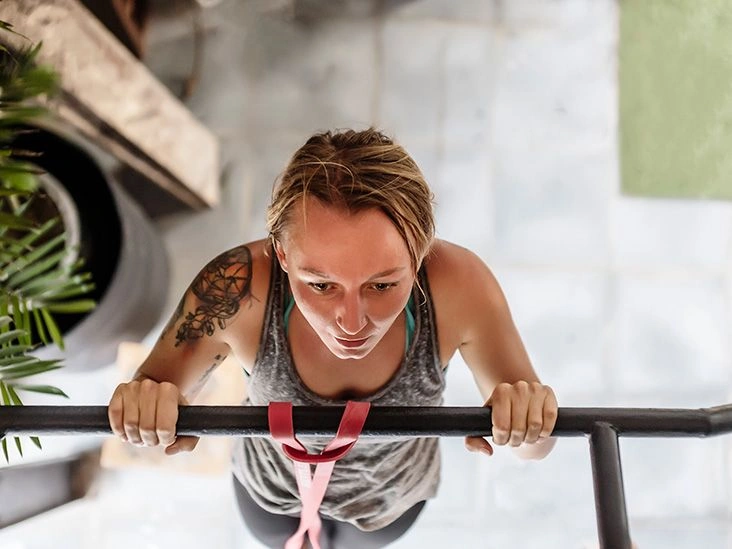


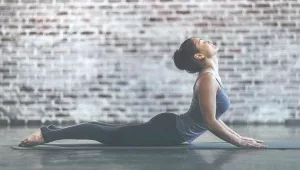

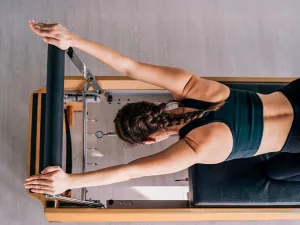

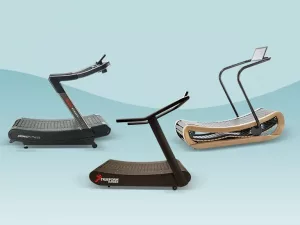
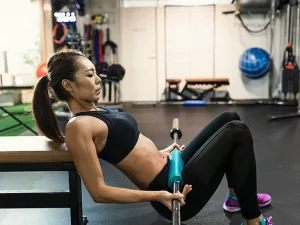















Leave a Reply
You must be logged in to post a comment.